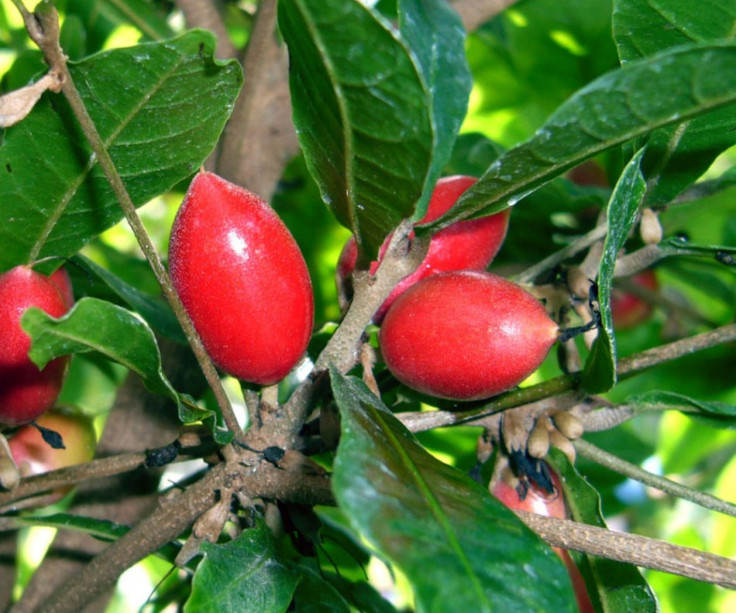From Sour to Sweet: Researchers Find How Fruit Tricks Tongue

The miracle fruit gets its name from one notable property: eat the West African red berry and for the next hour, anything sour will taste sweet.
Limes taste like maple syrup; lemons become as sweet as candy.
The miracle fruit has created a large following of gastronomes who host 'flavor tripping' parties where participants eat food under the influence of the tongue-tricking berry.
How the fruit works, however, has been a puzzle until now.
A team of French and Japanese researchers identified the lock and key mechanism that allows the fruit's active ingredient, miraculin, to latch onto sweet taste buds and convince the brain that vinegar tastes like apple cider.
The researchers unraveled the molecular trick the fruit plays on human tongues in a report published Monday in the online version of the Proceedings of the National Academy of Sciences.
Scientifically, it is interesting to find out how miraculin blocks the action of sour taste receptor, Keiko Abe, professor of applied biological chemistry at The University of Tokyo and lead researcher, wrote in an email response to IB Times.
Practically, it is important to use miraculin as a sourness modifier which would improve the flavors of vinegars, citrus fruits and other sour functional foods.
The substance may also prove to become a new sugar replacement, researchers say.
From an industrial point of view, we are interested in a large-scale production of miraculin because it has a good, sucrose-like taste and combines a non-caloric property, Abe wrote. Developing a safe sweetener for anti-diabetes and anti-obesity uses is of pressing importance.
Researchers back in 1968 identified miraculin, calling it a 'sweetness-inducing' and 'taste-modifying' protein from the berry plant.
The latest research assayed the taste-modifying activity using human cells and found that miraculin only bound to sweet-taste receptors in acidic conditions like those found in lemon juice or vinegar.
In a more neutral environment, like in plain water, the protein didn't work and failed to activate the receptors for sweet taste.
Only humans (and some limited kinds of monkeys) can sense the activity, Abe wrote.
© Copyright IBTimes 2025. All rights reserved.





















